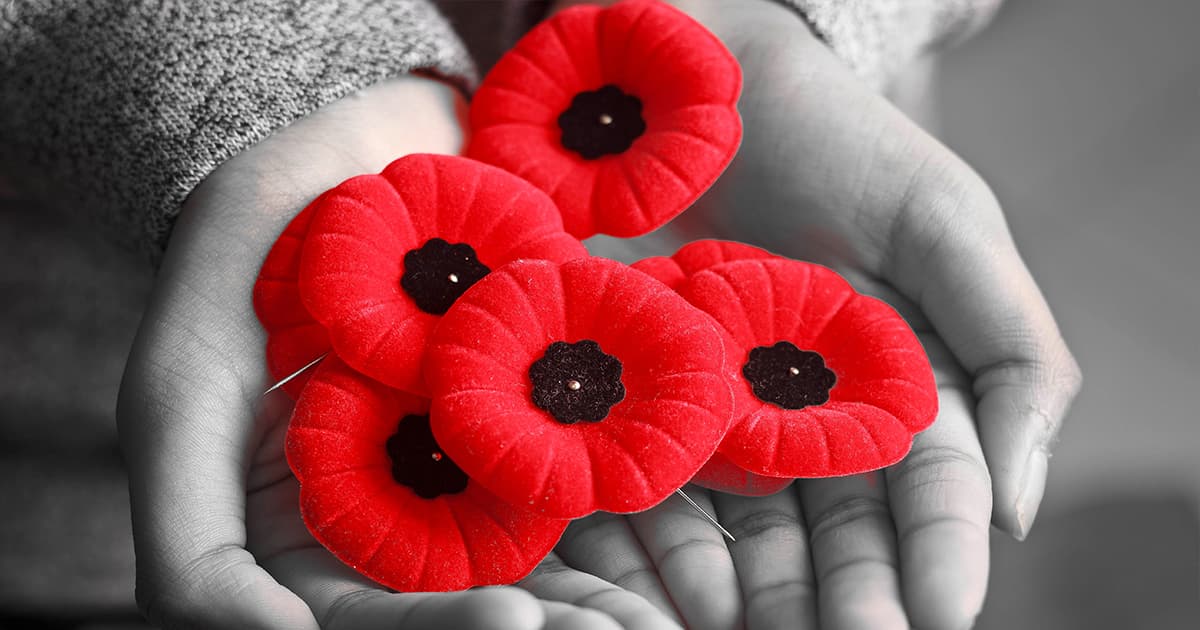The Enduring Legacy of Remembrance Day

Remembrance Day, observed on the 11th of November each year, is more than just a date on the calendar. It's a poignant reminder of the cost of peace and the valour of those who fought to achieve it.
The significance of Remembrance Day resonates deeply, reminding us of the price paid for the freedom we often take for granted.
Quick facts
Date Observed: November 11
Significance: Commemorates the armistice ending the First World War and honors veterans of all wars.
Origins: Marked since November 11, 1919.
Symbols: The red poppy is a widely recognized symbol of Remembrance Day.
Participation: Observed by Commonwealth member states and other countries.
Origins and evolution
First World War: The catalyst
Remembrance Day traces its roots back to the armistice on November 11, 1918, which marked the end of hostilities on the Western Front. Known initially as Armistice Day, the first anniversary in 1919 set the precedent for future observances. The unprecedented scale and devastation of the First World War, described then as "the war to end all wars," left deep marks on global consciousness.
Annual observance
The tradition of observing this day annually began as a way to honor the countless soldiers who died in the First World War. However, its scope broadened following the Second World War and other subsequent conflicts, transforming it into a day to remember and honor all those who have served and sacrificed in military conflicts.
Symbolism: The poppy
The red poppy, an iconic symbol of Remembrance Day, was inspired by the poem "In Flanders Fields," written by Canadian physician Lieutenant-Colonel John McCrae. Poppies bloomed across some of the deadliest battlefields of Flanders in the First World War, their bright red color an emblem of the blood spilled. Today, the poppy is not just a symbol of remembrance but also a beacon of hope and support for the war veterans, reminding us of the fragile nature of peace and the need for continual commitment to its preservation.
The global context
While rooted in the events of the First World War, Remembrance Day has taken on a broader significance in the 21st century. It's a day for reflecting on the impact of all wars, the importance of peacekeeping efforts, and the enduring need for reconciliation among nations. The day also reminds us of the ongoing support required for veterans and their families, especially as we witness the dwindling number of Second World War veterans.
A declining number of veterans
One stark reminder of the passing of time is the diminishing number of Second World War veterans. Their first-hand accounts and experiences are invaluable, offering insights and lessons that textbooks and documentaries can’t really replicate. The decline in their numbers brings an urgent need to preserve their stories and understand the human costs of global conflicts.
In the modern world: What Remembrance Day means today
In today's rapidly changing world, where conflicts often have complex and far-reaching impacts, Remembrance Day holds a significant place. It's not only a day for historical reflection but also an opportunity to consider our current actions and their consequences on future peace. It's a call to remember the atrocities of war and to honour those who have served.
Educating the younger generations
An essential aspect of Remembrance Day is education. It's crucial to pass on the history, stories, and lessons learned from past wars to younger generations. Schools and community groups often organize events and activities around this day to teach the values of bravery, sacrifice, and the importance of striving for peace.
As we observe Remembrance Day, let's take a moment to reflect not only on the past but also on our role in shaping a peaceful future. Each poppy worn, each story told, and each moment of silence observed is a step towards remembering the sacrifices made for our today. It is up to us to ensure that their sacrifices were not in vain, and their stories of valour and resilience continue to inspire generations to come.
In the words of Laurence Binyon's poem, "For the Fallen" – "At the going down of the sun and in the morning, We will remember them."
As insurance professionals, we understand the value of safeguarding what matters most.
This Remembrance Day, let's honor those who gave their all to protect our safety, our freedom, and our way of life. Lest we forget.



